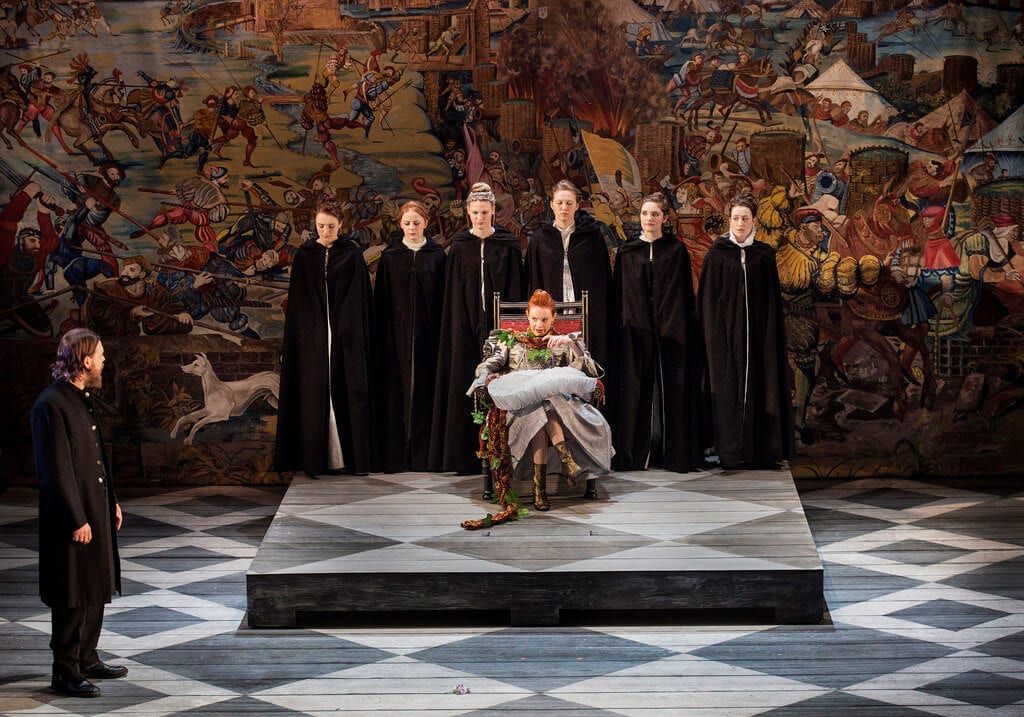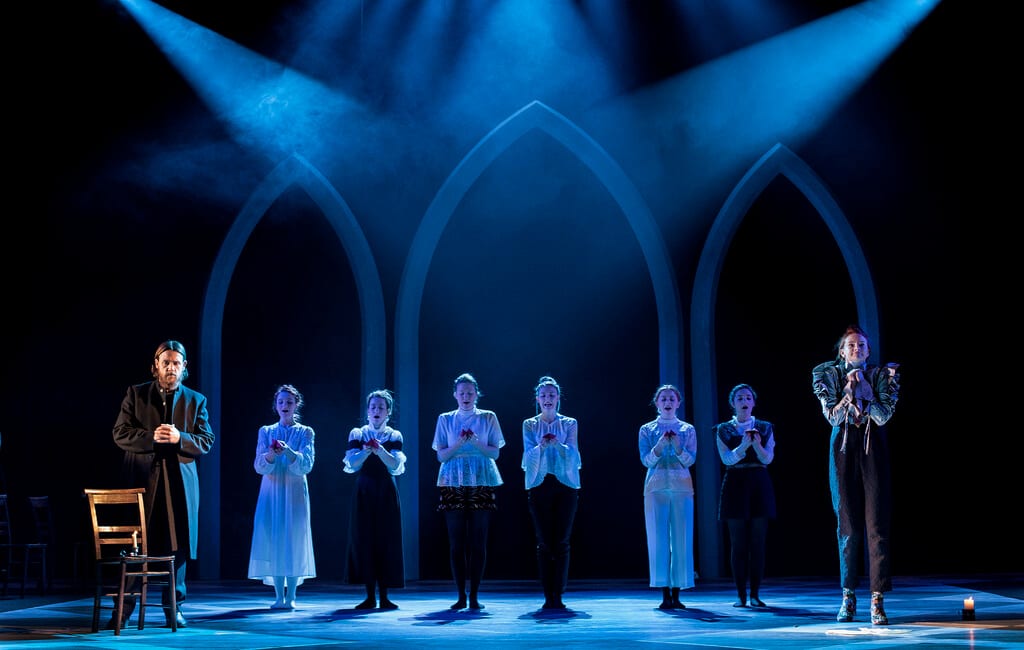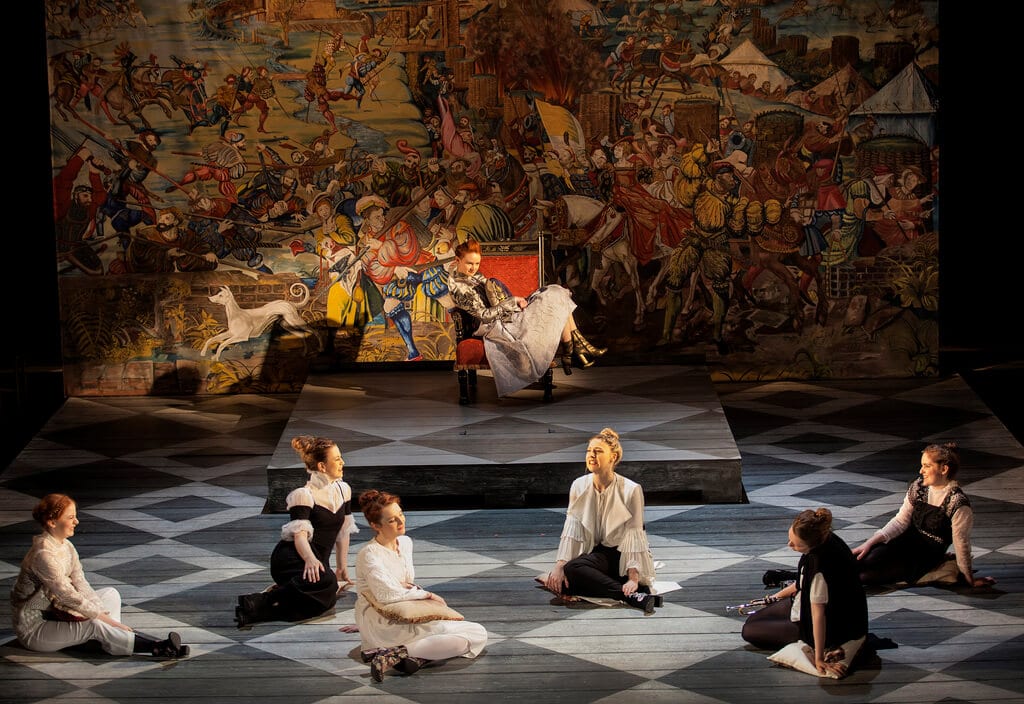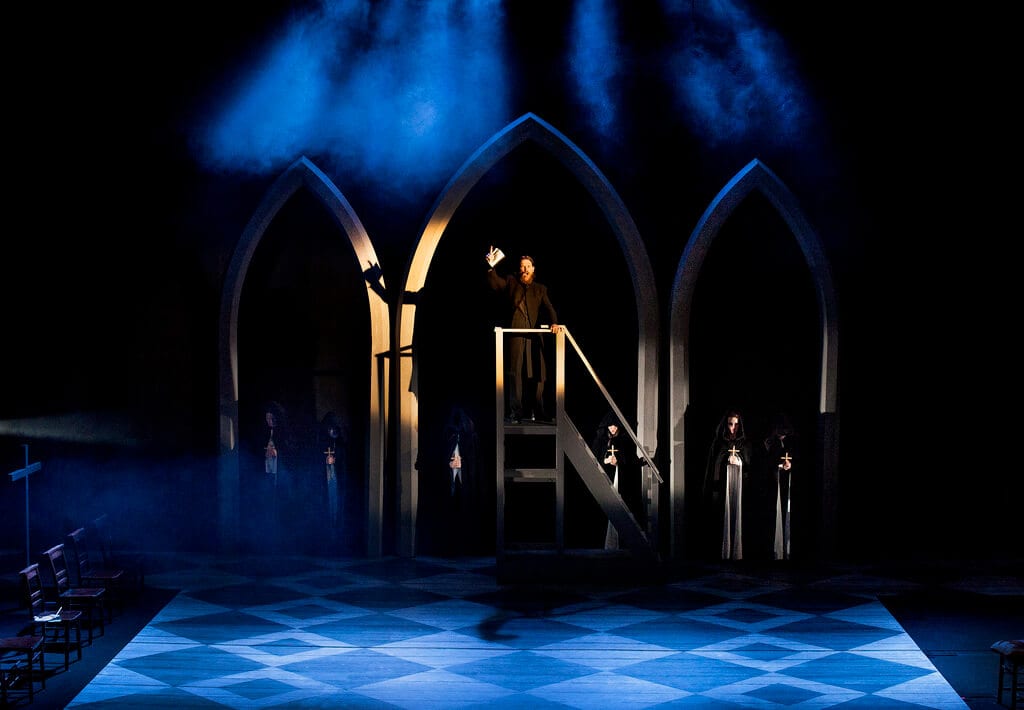 Shortly after arriving in Edinburgh in 1561, the Catholic Mary Queen of Scots held four meetings with her implacable Protestant critic, John Knox. Knox published records of these interviews in his History of the Reformation in Scotland, and it is from these accounts that Linda McLean has created Glory on Earth, a dramatisation of Mary’s life from 1561-1563 and her conversations with Knox.
Shortly after arriving in Edinburgh in 1561, the Catholic Mary Queen of Scots held four meetings with her implacable Protestant critic, John Knox. Knox published records of these interviews in his History of the Reformation in Scotland, and it is from these accounts that Linda McLean has created Glory on Earth, a dramatisation of Mary’s life from 1561-1563 and her conversations with Knox.
Throughout Glory on Earth, these conversations are punctuated with sermons from Knox (Jamie Sives) and Mary’s (Rona Morison) work at court in trying to find her place in the European political sphere. They are constantly accompanied by a chorus who interject and interact with the main characters, trying to recreate the air of Reformation Edinburgh.
The chorus are used throughout the play as everything from black-cloaked courtiers to wise-cracking teenagers, breaking into occasional beautiful French melodies. The contrast between this choral approach and the intense one-on-one conversations between Mary and Knox serves to highlight both the isolated and public characters of these two figures.
Unfortunately, the subject matter just does not make for a terribly gripping piece of theatre. Caught between the wish to stage complex theological debate and the need to make it comprehensible to a modern audience not necessarily versed in the intricacies of sixteenth-century religion, McLean has produced a play which somehow does neither. Historical details are rather crudely shoe-horned into the dialogue, and in seeking to retain audience interest, complicated debates have been reduced to a positive but simplistic message of peace and understanding.
However, there is certainly nothing to fault in the performances of the two leads. In public, Jamie Sives is all waving Bible and censorious wagging finger as Knox. He prowls the stage in a black coat and thunders denunciations of Mary from the pulpit. However, when she confronts him in private, he remains calm and collected, and Sives does well to temper his sermonising fire and brimstone with the cool certitude of the true believer.
Contrastingly, Rona Morison is passionate and emotional, providing a relatable, human quality. She brings eighteen year old Mary to life before our eyes, by turns playful teenager and masterful queen, surrounded by affectionate courtiers but not knowing whom to trust. When she stamps her foot and shrieks with rage at Knox’s endless reserves of disdain for her, it is hard not to join her.
David Greig’s staging and direction chooses to focus as much on what Mary and Knox have in common as what divides them. Great arches descend from the ceiling, representing palace and church alike through the presence of pulpits and thrones. Frequently, Mary and Knox are on stage together, but clearly in different locations, their speeches overlapping and repeating even while their words contradict and challenge.
At one point, Mary expresses her wish to Knox that they can ‘live the better divided in harmony, and in this, this play is certainly timely. Debates about the Scottish independence referendum, Donald Trump and Brexit have been characterised by an inability of people on both sides to even begin to see the other’s view. As Mary desperately tries to understand Knox, he stubbornly refuses to be understood or to understand her. Glory on Earth may not be a perfect work, but we would do well to listen to its message.




